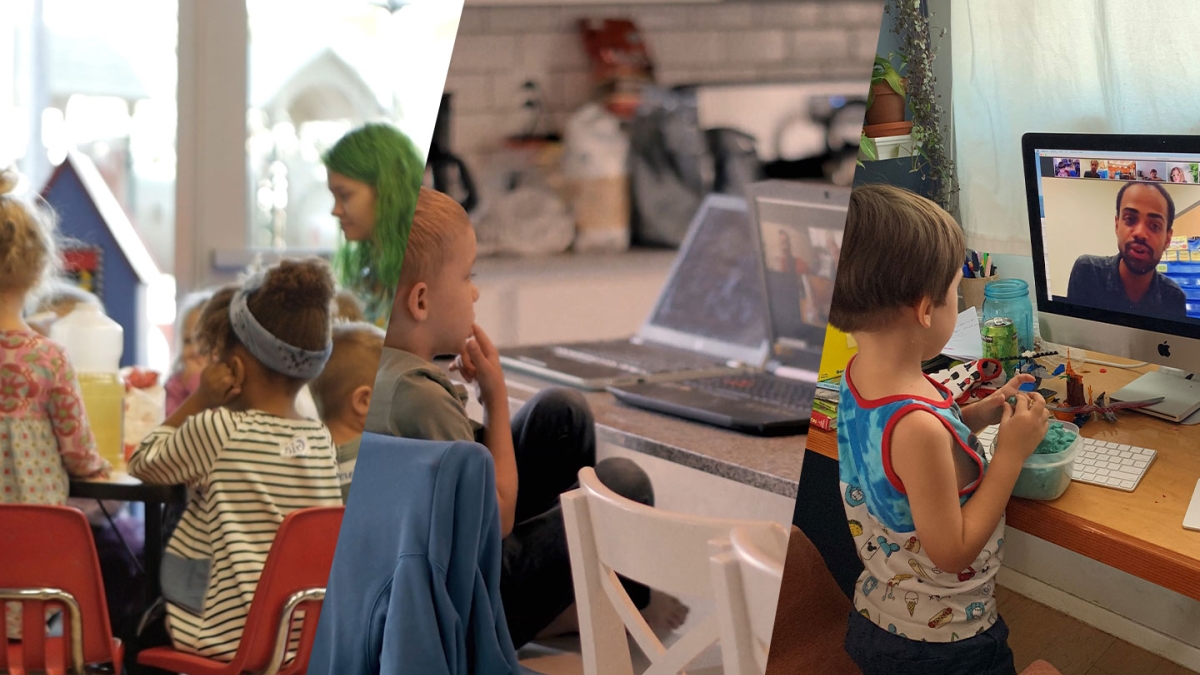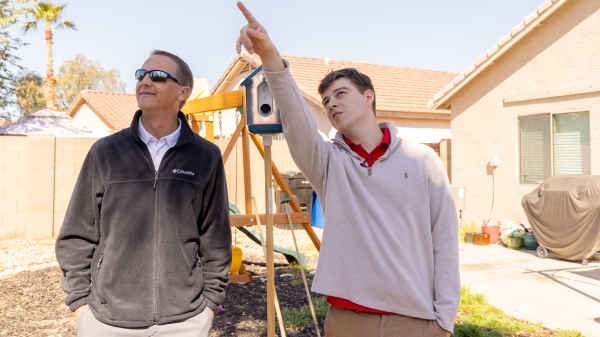ASU’s Child Study Lab launches new online curriculum for preschool-age learners

The Arizona State University Child Study Lab shifted its fall and winter curriculum to be an entirely online experience to help children learn the important skills that support a successful launch into elementary school and beyond, even during a pandemic.
The Arizona State University Child Study Lab shifted its fall and winter curriculum to be an entirely online experience to help children learn the important skills that support a successful launch into elementary school and beyond, even during a pandemic.
“Parents are starting to see how challenging it is to engage their children and immerse them in learning materials at home without the interaction with other kids their age,” said Anne Kupfer, director of the Child Study Lab. “It is difficult to replicate the preschool experience while trying to juggle the normal stress of working from home.”
According to a longitudinal study from the Perry Preschool Project, preschool improves lifelong earnings, achievement in school, and reduces negative life outcomes like crime and teenage pregnancies.
“Preschool provides a foundation for how children learn to interact with others. It’s very easy for children to interact with adults, but it is very difficult for them to interact with children their own age. That’s what we do best at the Child Study Lab,” Kupfer said. “We emphasize self-regulation because based on research over the last 40 years that is what will determine a child’s later academic and social success.”
Established by the ASU Department of Psychology in 1972, the Child Study Lab is a preschool where children and families explore, create, learn and grow. Typically, classes are in-person where children begin to navigate the complexities of life and learn to manage their emotions. Since the beginning of March, the Child Study Lab has shifted to a virtual learning model.
Video courtesy ASU Department of Psychology
Now enrolling for the fall and winter
Even though the school is online, the curriculum still focuses on cognitive, social-emotional, physical, and language development for children ages 15 months to pre-kindergarten. Children are encouraged to play and self-initiate learning to discover areas of improvement and interest.
The Child Study Lab program draws on the most recent research on child development to meet the needs, interests and abilities of each child.
With the goal of maximizing the development of children while still retaining their attention, online classes this fall will 2.5 hours long and will be offered two to five days a week.
“We ensure that your child will gain valuable skills they can take with them into their next educational experience and for the rest of their lives,” Kupfer said.
Last summer, the theme of the online curriculum was “Super Heroes.” Kupfer and her staff used that concept to teach the preschoolers about real-life heroes like first responders who work to keep them safe. Previous sessions have taught the children about how to help others in need and about developments in technology across history.
The new curriculum for this fall is called “Who, what, when, where, why and how?” and will teach students where to look for information and how to process it in a new digital world.
Visit the CSL’s homepage for more information about signing up for the virtual program.
“The Child Study Lab is a jewel — one the Department of Psychology has been proud of for almost 50 years,” said Steve Neuberg, Foundation Professor and chair of the Department of Psychology. “All three of my own children attended and greatly benefitted from the CSL, and I know that my wife and I became better parents because of what we learned from its teachers.”
More Science and technology

Making magic happen: Engineering and designing theme parks
The themed entertainment industry is widespread and diverse, encompassing everything from theme parks to aquariums, zoos, water…

AI-equipped feeders allow ASU Online students to study bird behavior remotely
ASU Online students are participating in a research opportunity that's for the birds — literally. Online Bird Buddies is a…

National Humanities Center renews partnership with Lincoln Center for responsible AI research
The National Humanities Center has announced that Arizona State University's Lincoln Center for Applied Ethics is one of four…